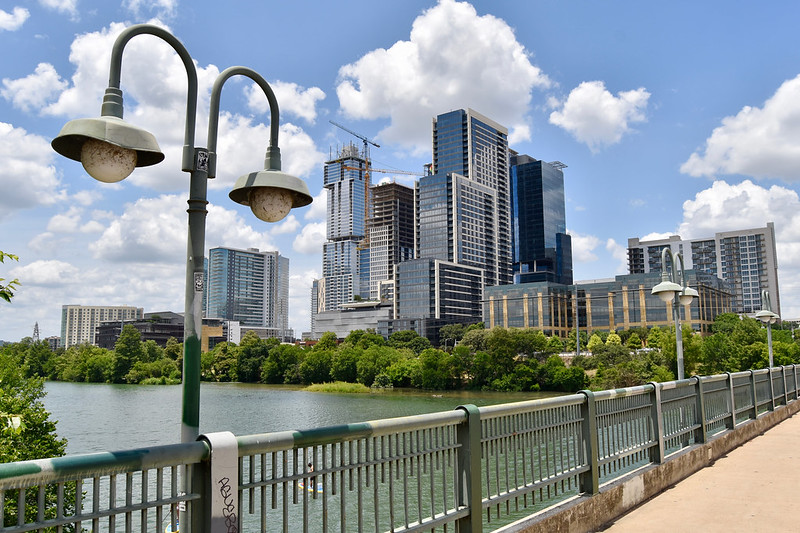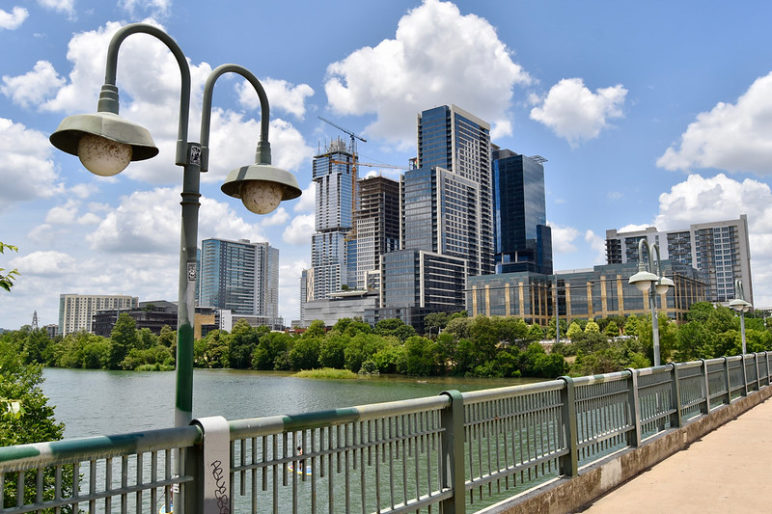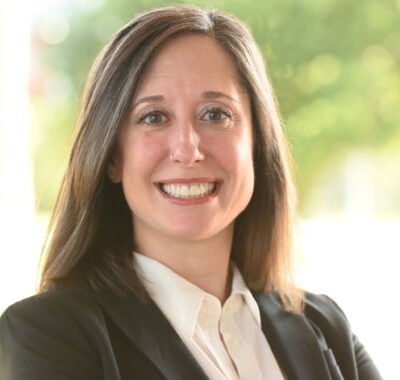Housing reformers from all over the country are currently in Portland, Oregon, for YIMBYtown, a national conference about housing abundance and affordability. Last week I was lucky to catch up with one of the panelists, Leah Bojo.
Bojo worked as the policy director for Chris Riley, a city councilor in Austin. In that time the Texas capital successfully removed parking minimums downtown and implemented Austin’s first parking benefits district: installing parking meters and permits in the West Campus neighborhood around the University of Texas. Now she works as a land use consultant for property owners and developers, helping them navigate the zoning code to build more housing and less parking. Here’s some of our conversation:
What got you interested in parking policy?
When I went to graduate school, I got a dual degree in public policy and city planning. I read [Donald Shoup’s] The High Cost of Free Parking in an economics class for my policy degree, while in some of my planning classes I was hearing people talk about the importance of parking minimums, so it was a fun meeting of those two conversations. In the economics class, we were supposed to do an analysis of a market failure, and free parking was the market failure.
I think a lot of people who love Shoup feel this way. Either you grab onto it and it changes your whole mindset about policy and parking, or you’re like, “Yeah, but where am I going to park my car?” It really did change my whole view of planning in general and zoning.
Could you tell me how parking policy shows up in the work you’re doing now?
I consult for developers and property owners on projects. We work with architects and civil engineers a lot. We see that the first thing they do, whether it’s the market demand or the code requirement for parking, parking is usually one of the first things they draw, and they design the building around it.
“There’s definitely no question that we’re overbuilding parking on projects.”

And then it comes up a lot with neighborhoods, when we’re trying to upzone for multifamily. We often have to choose: if we’re going to get this multifamily building in we’re going to have to commit to parking at a level that is probably more than it really needs, but if we don’t commit to that parking, we’re not going to get the housing units. There’s definitely no question that we’re overbuilding parking on projects.
Was there a project you worked on that the developer said, “Hey, can we lower our parking requirements?”, and he tried and it didn’t work and they walked away from the project?
More of what happens is that [housing] units get whittled off of every development. There’s an envelope you can build in, and a lot of it ends up being parking. In West campus, we have height limits and no parking requirements as of very recently. If a builder is likely to build parking, they put it underground, because the height limit actually becomes important. I think West campus is the only place where people have to make that choice [between housing units and unmandated parking spots]. And they do choose units—maybe not all the time, but more than the rest of the city.
Austin seems to have high parking requirements, compared to other cities.
They’re super high. I’m pretty sure they’re the same as they were when they were introduced in the ‘50s. Some of them have changed around the edges, but multifamily—the one-and-a-half spots for a one-bedroom, two for a two-bedroom—that’s the same.
One thing I hear, even from progressive cities, is when they try to look at parking minimums, they kind of carve away at them in areas near transit, or there’s a lot of qualifications that can get you less parking or maybe even no parking—which is still kind of complicated. Compared to just… “we don’t need a minimum.” Why are we defending this number?
One thing we’ll often say is, “Can we reduce or eliminate parking requirements on this site?”, and staff will say, “Yes, but you should have a transportation demand management plan to go with it.” Really, we should be requiring a TDM plan if you do provide parking, not if you don’t.
I think everyone’s a bit afraid of crazy traffic and parking congestion. I don’t know how it could be worse than it is right now. We’re building all this parking and driving to it. It’s horrible. It doesn’t work.
“Really, we should be requiring a TDM plan if you do provide parking, not if you don’t.”

Some smaller cities have made it that simple, like they’ve just crossed that line out of their code. When I worked with Chris [former City Councilor Chris Riley] and we got rid of parking requirements in the central business district, the reason we brought that forward is because he and I separately heard a few people, even council members and city staff, saying that there weren’t parking requirements in the downtown. So we were like, “Well, if no one thinks they’re there, let’s just get rid of them. It should be really straightforward, right?” Then we did the initiation of the code amendment, and everyone went wild. It was three separate readings and this excruciating discussion of how it was going to work.
Do you feel optimistic that there will be positive changes in the future? I feel like we’ve had eras before where we thought people were going to drive less, and cities were growing again, and all these things were going to change, but change takes a really long time.
I feel like everyone is really hanging their hat on electric cars, like that’s going to solve the problem. It’s hard to get the message through that cars are bad for cities.
Right, like why do we need to get rid of parking if cars aren’t bad anymore? Because they’re still not connecting the other piece: that this makes housing hard to build and more expensive when it is built.
And spreads everything apart and kills people on the roads and all these things that electric cars do just the same way. I don’t know if it’s just my awareness is growing, but there does seem like there’s some understanding of the relationship between parking and housing, so I’ll be optimistic about that. Maybe what we should be doing is instead of talking about how bad cars are is talking about how great it is to get around in other ways. It’s lovely to take a walk to a coffee shop. Shouldn’t everyone get to do that?
This transcript was edited for brevity and clarity.
YIMBYtown attendees can hear more from Bojo Tuesday, April 12, at 1:45 p.m. at the breakout session: Parking Reform: From Theory to Practice.












